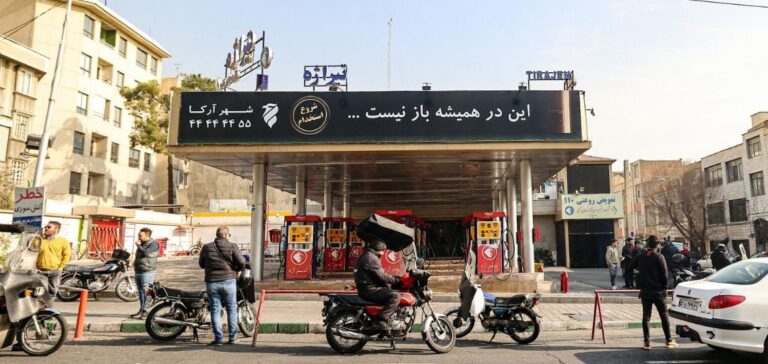Masoud Pezeshkian, elected President of Iran in 2024, is highlighting the need to reform gasoline subsidies, a measure that could have major consequences for the Iranian economy.
Iran’s massive gasoline subsidies keep fuel prices extremely low, costing the government billions of dollars every year.
These subsidies, while helping to maintain a certain level of social stability, are increasingly perceived as unsustainable in the current economic climate. As a reformist, President Pezeshkian has been critical of the populist economic policies of his predecessors, whom he accuses of having exacerbated the country’s economic problems.
However, he is aware that any changes to gasoline subsidies could provoke a violent reaction from the population.
In 2019, an increase in gasoline prices triggered massive protests across the country, exacerbating already existing social tensions.
The ensuing crackdown claimed many lives and drove an even deeper wedge between the regime and the population.
Potential impact on the economy and purchasing power
Current gasoline subsidies are a mainstay of the Iranian economy, but they also represent an unsustainable financial burden for the state.
Rampant inflation and the ongoing devaluation of the rial have already severely weakened Iranians’ purchasing power.
An increase in gasoline prices, which could reach up to 500,000 rials per liter according to sources close to the government, would have a devastating effect on the cost of living, notably by raising transport costs and the prices of basic consumer goods.
For energy sector professionals, this reform could lead to a major reconfiguration of Iran’s domestic fuel market.
The question of the long-term viability of subsidies, against a backdrop of economic crisis and international sanctions, has become central.
Pezeshkian must therefore strike a balance between the need to reduce public spending and the imperative of maintaining social peace.
The political stakes of subsidy reform
Pezeshkian’s proposal to reduce gasoline subsidies also raises questions about the stability of the Iranian regime.
The mullah regime, dominated by religious elites and the Revolutionary Guards, relies heavily on these subsidies to maintain social order.
An abrupt reduction in these subsidies could weaken the government’s legitimacy, particularly if it leads to a new wave of protests as in 2019.
Although Pezeshkian is a reformist, he operates within a complex political system where any attempt at major economic reform can be perceived as a threat by the regime’s conservative factions.
The latter, who indirectly benefit from current subsidies, could resist any change perceived as destabilizing to their interests.
An uncertain future for the Iranian economy
Iran is at a critical juncture.
Gasoline subsidy reform, while necessary to avoid long-term fiscal collapse, could have unpredictable consequences.
Industry professionals are keeping a close eye on developments, aware that how this reform is implemented will determine the country’s economic and political future.
If Pezeshkian succeeds in carrying out these reforms while maintaining social stability, he could strengthen his position within the regime.
However, failure could lead to a deep crisis, jeopardizing not only his government, but also the survival of the mullahs’ regime.





















